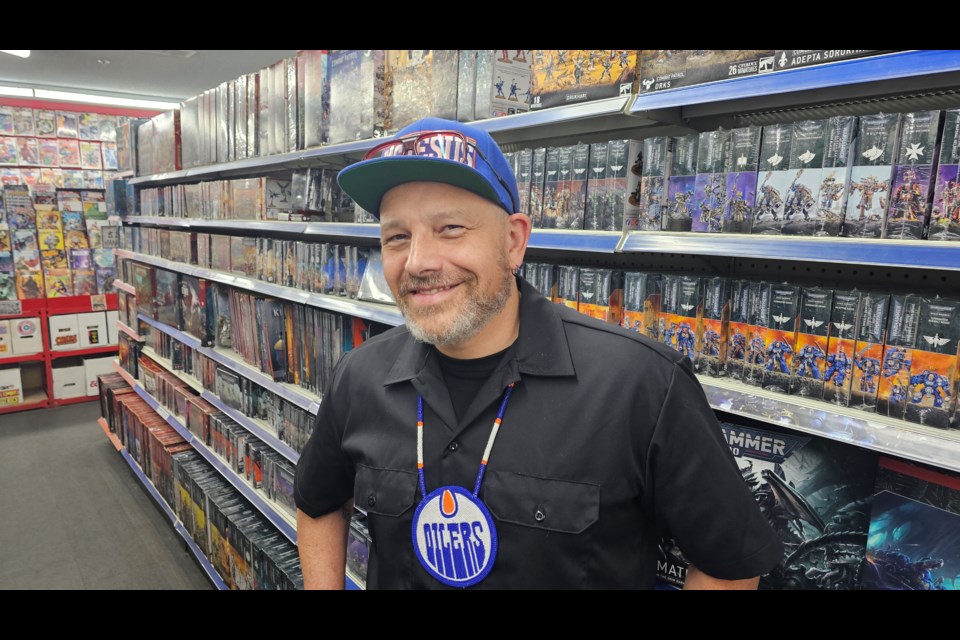If you had told Josh Nilson as a kid that he’d one day be making games for the cast of Trailer Park Boys, It’s Always Sunny in Philadelphia and The Office, he probably wouldn’t have believed you.
But Nilson has not only hit major milestones in the video game industry — he’s also investing in his community to help foster more Indigenous involvement in tech.
Nilson, who was born Métis, grew up in Willow River, a village of about 150 people located 30 kilometres east of Prince George.
From a young age, he was fascinated by technology, especially video games. He told The Citizen he grew up during the golden age of retro consoles and spent his summers playing Atari, ColecoVision and Dungeons & Dragons.
“I initially wanted to work for TSR and work on D&D or making board games,” said Nilson. “When I went to school, they didn’t really have the programs we have now. So on Career Day, when I said I wanted to make games, they asked if I was going to university. I didn’t think university was in the cards. So I said, I guess I’ll work in hospitality.”
Nilson spent close to 15 years travelling the country, opening kitchens in restaurants and hotels. He began an IT course at Capilano University in 2001, but it wasn’t until a friend mentioned they were hiring in an IT department that his tech career truly began.
He started in IT at Relic Entertainment and quickly moved into production, working on titles like Company of Heroes and Dawn of War.
But Nilson says a major life decision helped steer him toward real success.
“My wife said, why don’t we quit our jobs and backpack around the world? I was almost 30 and thought, if I don’t do it now, I’ll regret it. So we did that," he said. “When I came back to games, I noticed a new kind of game — stuff you could play online and connect with friends on Facebook. I had been playing a lot of Facebook and mobile games while travelling. So I thought, what if I worked for a company making those?”
That idea led him to a studio that was later sold, and ultimately, Nilson became one of the three founders of East Side Games.
Since then, East Side Games has become a major player in the mobile gaming market.
“We were the only licensed Trailer Park Boys game in existence, and it became one of East Side Games’ most successful titles,” said Nilson. “We did over 30 games — not all of them survived — but we grew our team to over 200 people and went public on the TSX. We’re one of the only game studios in Canada that has done that, and we did it during the pandemic.”
Over the past 20 years, Nilson and his team have launched popular games including Trailer Park Boys: Greasy Money, The Office: Somehow We Manage, RuPaul’s Drag Race Superstar, The Gang Goes Mobile, Star Trek: Lower Decks and Cheech & Chong’s Kush Kingdom.
In 2021, East Side Games was acquired by another mobile studio, LEAF, in a $159-million deal.
Since then, Nilson has shifted some of his focus to entrepreneurship and Indigenous tech.
His latest venture, Maskwa Investments, supports tech startups through funding and consultation, with a strong focus on Indigenous-led companies.
So far, Maskwa has invested in Spark Agency Group, a marketing and communications firm; Artemis, a data stack monitoring company; and Maskwa Games.
“I’ve made a number of investments already, and I have more pending,” he said. “We also started an Indigenous tech circle. It began with six people during the pandemic, and now we have nearly a thousand Indigenous tech professionals. We do programming and we’re now a registered non-profit.”
Nilson shared his guiding philosophy for fostering Indigenous entrepreneurship and tech leadership.
“I’m just having fun doing this,” he said. “The best thing I’m doing is social impact investing — investing to disrupt and in areas that not many others are exploring. Now I’m trying something new: social impact gaming.
“I’m investing in games that get people thinking differently. My hope is we can train 100 Indigenous youth to become game developers. One of them is going to make a game way better than anything I’ve done. Then, one generation from now, we’ll have 1,000 Indigenous developers — then 10,000 — then 100,000.”



